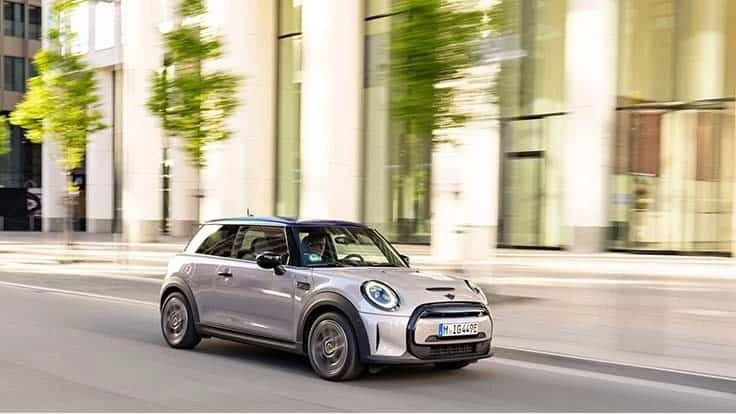
Photo courtesy of BMW Group
The Munich-based BMW Group has announced it will start to use light-alloy cast wheels made from 70 percent secondary aluminum next year in its “new generation” of the Mini Countryman vehicle.
The use of scrap-content aluminum wheels was part of a larger announcement by the automaker regarding its commitment to using “cast aluminum wheels produced with 100 percent ‘green’ power for its BMW and Mini brands from 2024 onwards.”
For the Countryman, the combination of 100 percent green power for production and 70 percent secondary raw material content can reduce CO2 emissions by up to 80 percent compared to conventional manufacturing processes, says the vehicle manufacturer.
“Green power is one of the biggest levers for reducing CO2 emissions in our supply chain,” says Joachim Post, a member of the board of management of BMW AG who is responsible for its purchasing and supplier network. “We have already signed more than 400 contracts with our suppliers, including suppliers of wheels and aluminum, requiring them to use green power.”
The BMW Group says it procures about 10 million light-alloy wheels per year, with 95 percent of those are made from cast aluminum.
States the automaker, “Aluminum has good recycling properties, making it easier to melt down old wheels as part of the circular economy. This eliminates the need for energy-intensive electrolysis to produce the primary raw material. At the same time, the secondary raw material must also meet the BMW Group’s premium requirements for quality, design, safety and mechanical properties.”
The BMW Group also cites its involvement with the Australia-based Aluminium Stewardship Initiative (ASI), as “making an important contribution to creating an environmentally and socially responsible aluminum value chain.”
Systematically increasing the percentage of secondary aluminum, says BMW, “makes a further contribution to sustainability, in line with the principles of the circular economy the BMW Group aspires to.”
On the green energy side, BMW says since last year it has sourced aluminum from the United Arab Emirates (UAE) manufactured exclusively using electricity obtained from solar power. The aluminum produced in Dubai, UAE, is then processed in a BMW foundry in Germany, where it is used to manufacture body and drive train components. “The 43,000 metric tons of solar aluminum sourced in this way supply almost half the annual requirements of the Landshut [Germany] light metal foundry,” states the company.
Latest from Recycling Today
- Aqua Metals secures $1.5M loan, reports operational strides
- AF&PA urges veto of NY bill
- Aluminum Association includes recycling among 2025 policy priorities
- AISI applauds waterways spending bill
- Lux Research questions hydrogen’s transportation role
- Sonoco selling thermoformed, flexible packaging business to Toppan for $1.8B
- ReMA offers Superfund informational reports
- Hyster-Yale commits to US production





